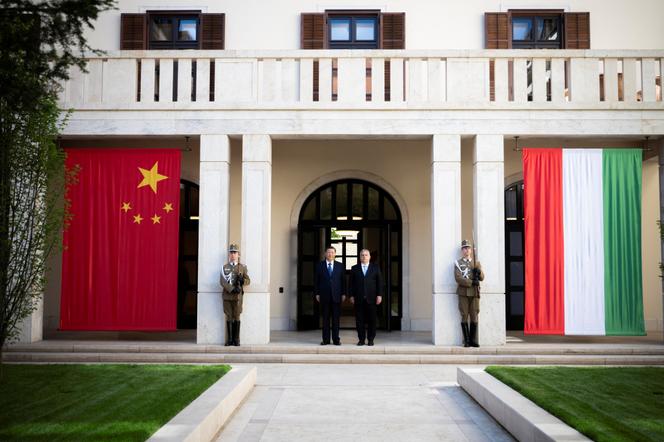


There was much talk of "friendship" in Serbia and Hungary during Xi Jinping's visit. An "ironclad" friendship in Belgrade, "the best [friendship] in history" in Budapest... The Chinese president employed superlatives to gratify his hosts, Serbian President Aleksandar Vucic and Hungarian Prime Minister Viktor Orban, who rolled out the red carpet for him and hung Chinese flags everywhere in their capitals.
While the French leg of the trip, from Sunday, May 5 to Tuesday, May 7, highlighted, despite its cordial tone, the accumulation of disputes between China and the European Union, from subsidies to the electric vehicle industry to Xi's ever-greater support for Vladimir Putin, the rest of the trip was to show, on the contrary, that Beijing does have allies in Europe.
What Vucic and Orban have in common is their pronounced anti-Western rhetoric, democratic backsliding in their countries, and stormy relationships with the EU, even though Serbia is not yet a member. "Our voice, the voice of Hungary, is a lonely voice in Europe," Orban acknowledged in a statement to the press alongside Xi, Thursday, arguing that "one of the pillars of [the] new world order is the Republic of China."
In Serbia and Hungary, Xi heard no criticism, in a display of a jubilant relationship – a far cry from the complaints voiced in Paris about his trade policy. The relationship with Hungary has been elevated to the rank of "all-weather comprehensive strategic partnership," thereby elevating it as among Beijing's most highly regarded. Numerous sector-specific cooperation agreements have been signed: "26" in Belgrade, "18" in Budapest.
Their content remains rather vague, but there was talk, particularly in Serbia, of developing cooperation between Serbian and Chinese media, while Brussels has been calling for years for the Balkan country to improve its freedom of press if it wants to join the EU. In Hungary, there was discussion of new rail projects in addition to the train line between Belgrade and Budapest currently under construction by China, and, for the first time, cooperation in the nuclear energy sector.
Contrary to expectations, however, no concrete investments were announced, even though Chinese companies have invested massively in both countries in recent years. With this double visit, Xi has, above all, succeeded in showing Brussels that he is counting on these two capitals to curb any possible reprisals against his economic policy. "China supports Hungary in playing a bigger role in the EU," he declared, as Hungary prepares to take over the rotating presidency of the European Council in July.
You have 52.99% of this article left to read. The rest is for subscribers only.
